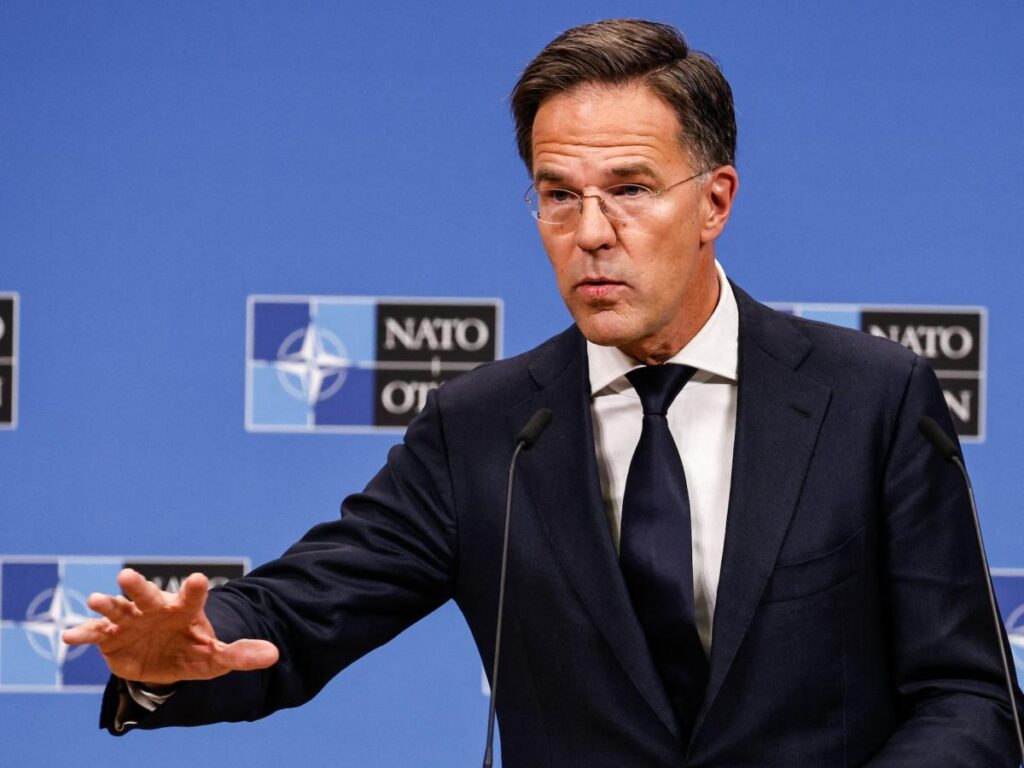NATO Secretary General Mark Rutte’s recent statements have underscored a significant development in the ongoing war in Ukraine: the reported deployment of North Korean troops to support Russia’s invasion efforts. Rutte characterized this military collaboration as a reflection of Russia’s growing desperation, claiming that President Vladimir Putin is increasingly reliant on foreign assistance to maintain his military campaign. Intelligence from South Korea’s National Intelligence Service and NATO allies suggests that these North Korean forces have been stationed in the Kursk region of Russia, an area that Ukraine continues to contest. With estimates of over 600,000 Russian military personnel killed or wounded since the onset of the conflict, Rutte emphasized that Russia’s ability to sustain its assault has been greatly weakened without external support.
Ukrainian President Volodymyr Zelenskyy added to the urgency of the situation by announcing that he anticipates encountering North Korean troops on the battlefield imminently. This marks a potentially unprecedented moment in the conflict, as foreign ground troops would directly engage in the hostilities, moving beyond the previous arrangements in which countries had supplied arms and strategic guidance. Zelenskyy disclosed that he had received intelligence indicating that North Korea might send as many as 10,000 troops into Russian-occupied territories in Ukraine, raising alarms among regional actors, particularly in South Korea. The intensity of the military situation is compounded by North Korea’s decision, which appears to come as a direct support for Russia’s failing efforts in Ukraine.
The prospect of North Korean troops engaging in the conflict has significant implications not only for Ukrainian defense but for the broader geopolitical landscape. Officials in South Korea have expressed alarm regarding North Korea’s military involvement in Ukraine, which they view as a threat that could exacerbate tensions on the Korean Peninsula. The situation has compelled South Korean authorities to consider supplying weapons to Ukraine as part of multi-phase countermeasures aimed at addressing the new developments in regional security dynamics. Rutte underscored that both Russia and North Korea should withdraw their forces to mitigate risks to security in the Indo-Pacific and Euro-Atlantic regions alike, arguing that such actions undermine global stability.
In response to the evolving situation, Putin seemed to dismiss international concerns about the deployment of North Korean troops, asserting that it is a matter of Russian sovereignty. He indicated that Russia’s decisions regarding military strategy and operations are ultimately for the nation’s leadership to make without outside interference. This rhetoric reflects a broader attitude from Moscow that is often resistant to external criticism, especially concerning military alliances or partnerships that enhance Russia’s capacity in the ongoing conflict. The potential validation of North Korean involvement in the war serves not only as a tactical adjustment for Russia but also as a signal to other nations regarding the shifting alliances in the face of prolonged military challenges.
Rutte’s remarks come at a critical juncture—around two and a half years into the war—where the sustained pressure on Russian forces has escalated calls for increased foreign support for Ukraine. The apprehension stemming from potential North Korean involvement highlights the complexity of international responses to the war, with different countries weighing their alliances and security concerns against the backdrop of a changing battlefield. The precarious balance that NATO aims to maintain must now contend with the addition of North Korea to the mix, presenting heightened challenges for regional and global diplomacy while urging allied nations to respond collectively to this unexpected development.
As the situation evolves and implications proliferate, the international community stands at a crossroads, contemplating the ramifications of North Korean troop deployment in Ukraine. This hazardous intersection of geopolitical issues, characterized by escalating military involvement and shifting alliances, calls for a reassessment of strategies employed by both NATO and its allies. Vigilance and coordination among nations will be crucial in mitigating potential threats and fostering a more stable environment, as the engagement of foreign troops in Ukraine signifies a new phase that could reshape the contours of the conflict and influence future international interactions in this volatile region.

